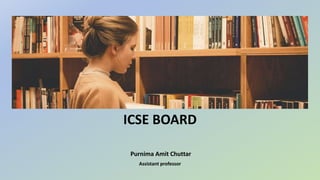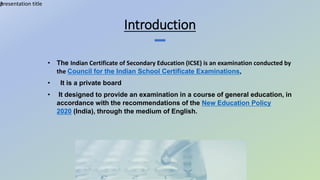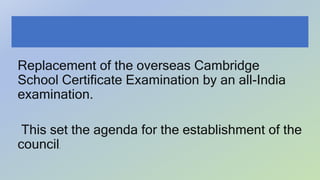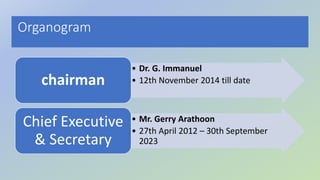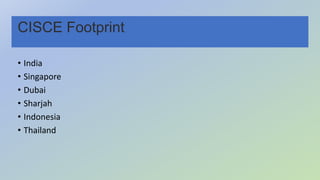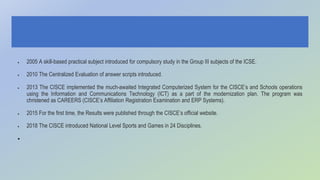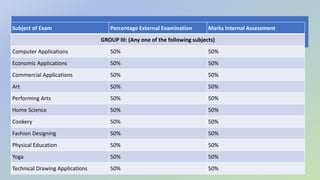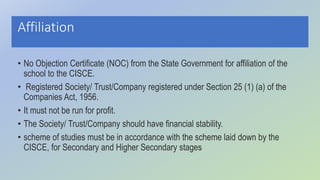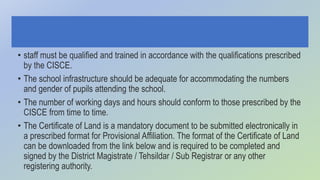The Indian Certificate of Secondary Education (ICSE) is a private board established in 1958 that conducts the ICSE examination for 10th grade and the Indian School Certificate (ISC) examination for 12th grade. It is governed by the Council for the Indian School Certificate Examinations (CISCE). The CISCE oversees curriculum, examinations, affiliation of schools, and other activities. Schools must meet requirements regarding infrastructure, staff qualifications, academic hours, and more to be affiliated with the CISCE. The ICSE curriculum and examinations focus on developing well-rounded students through a balanced course of study including compulsory and optional subjects.
